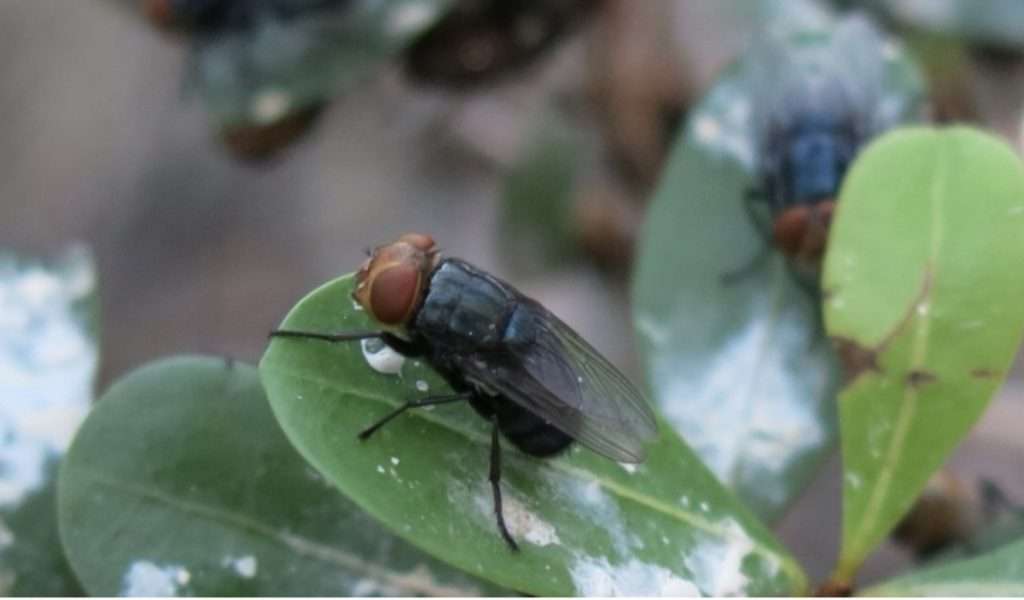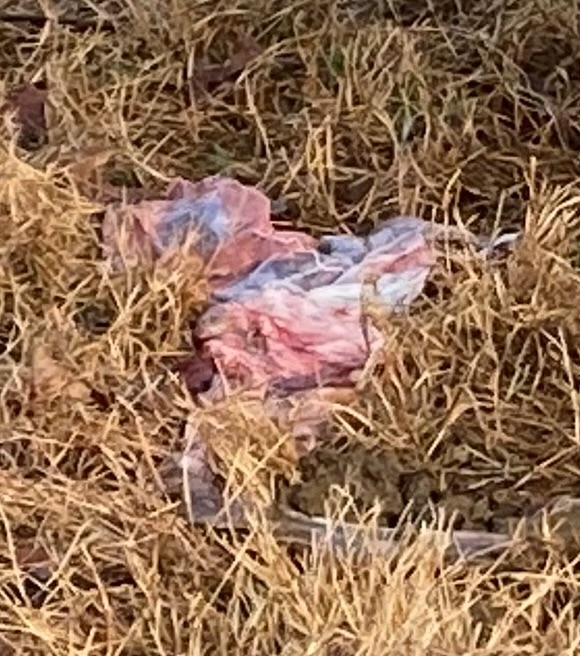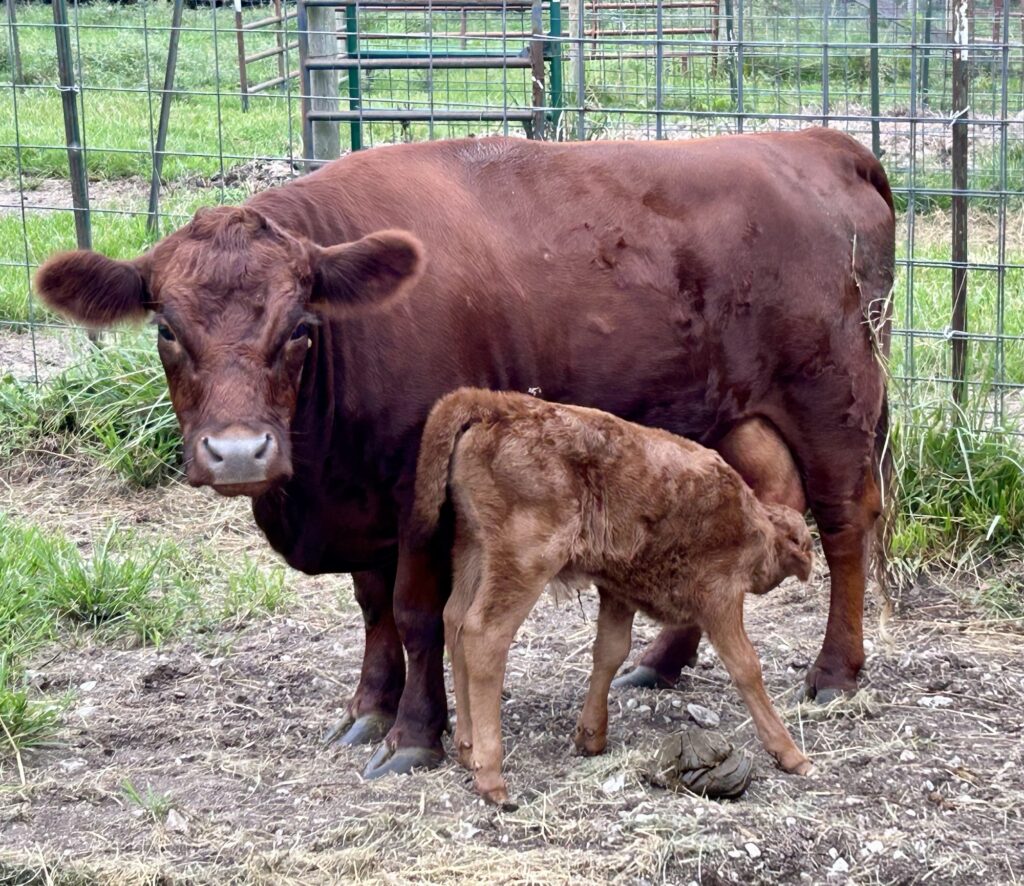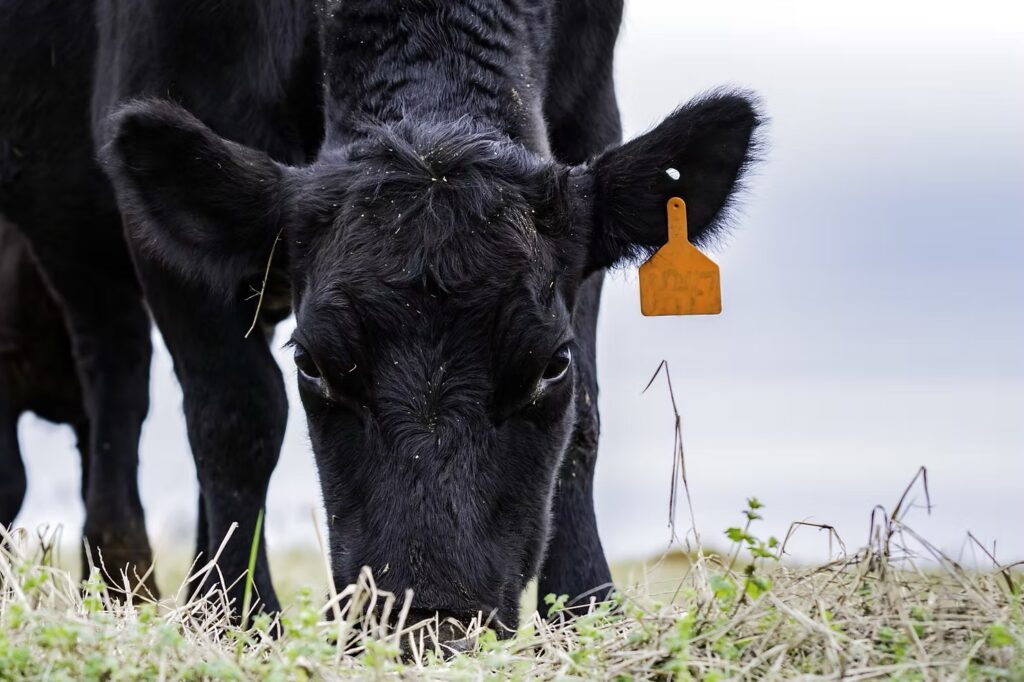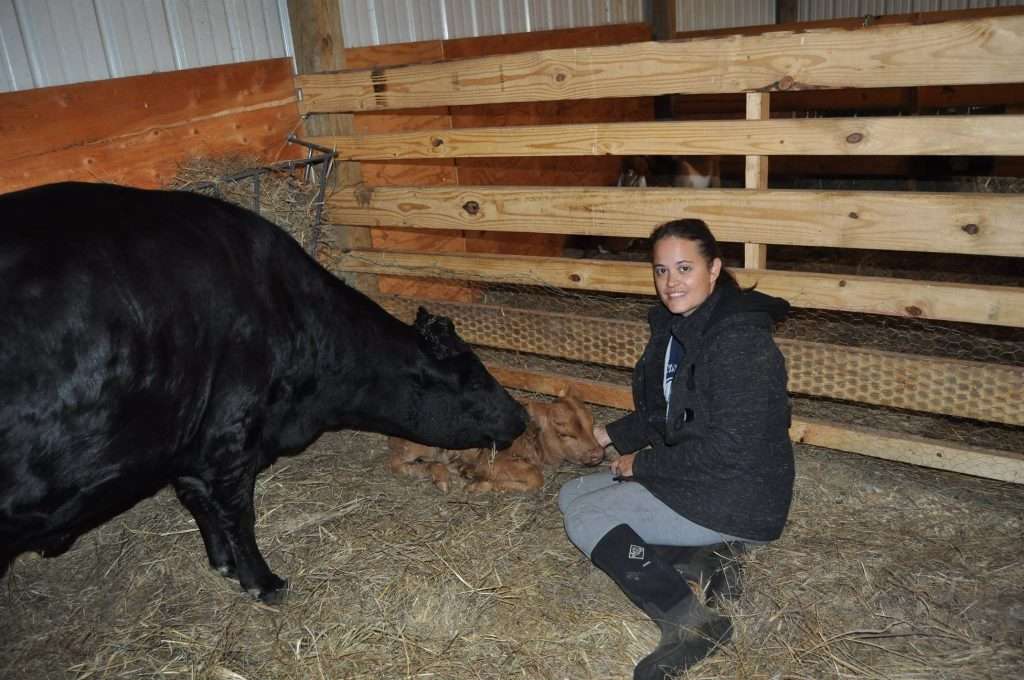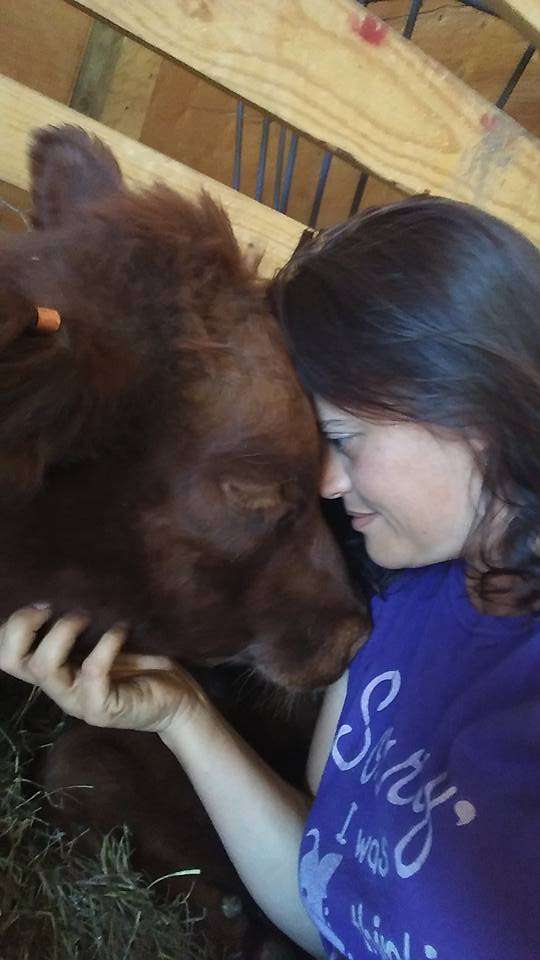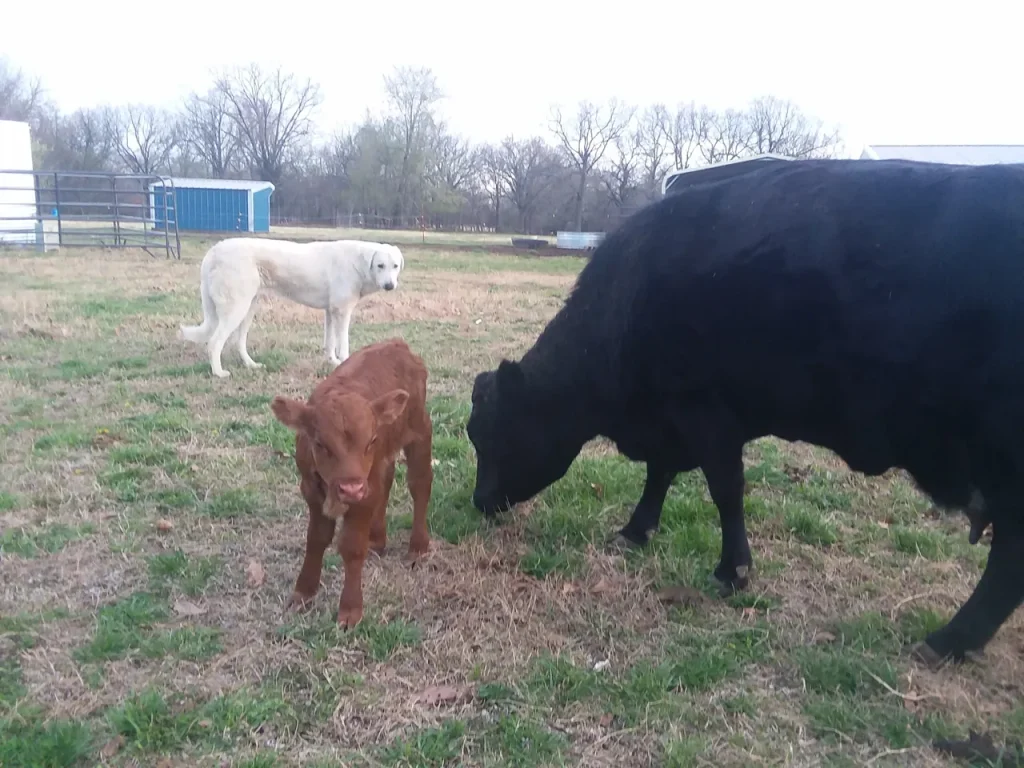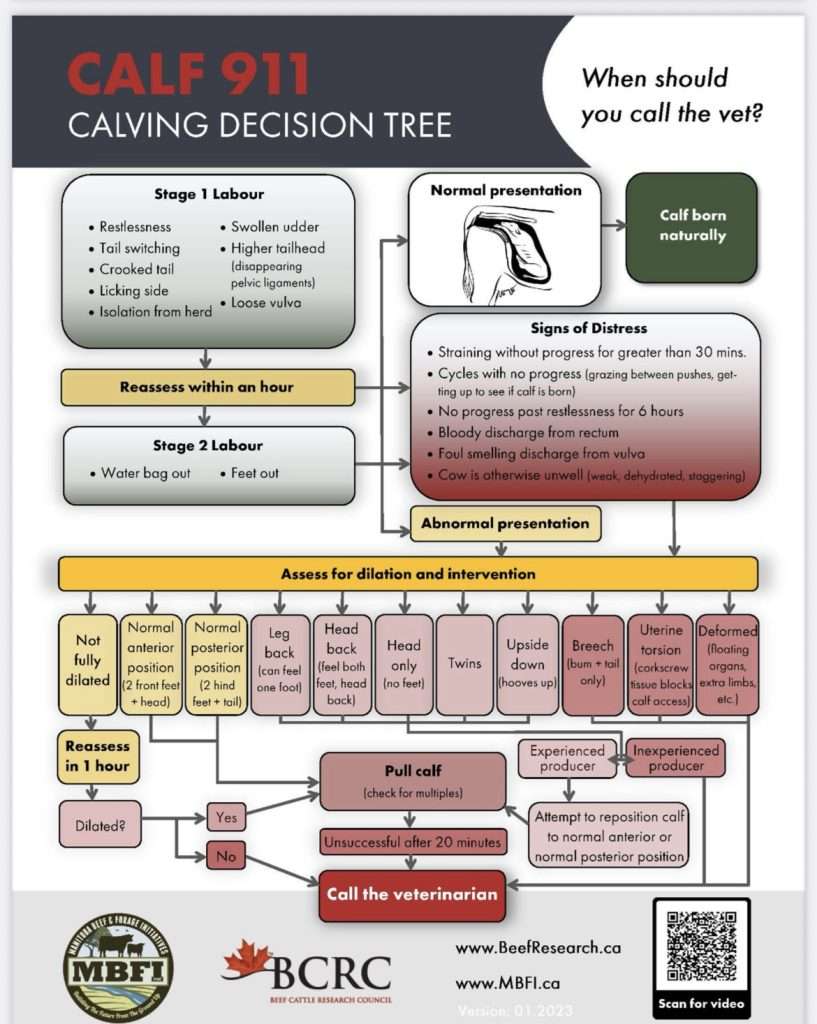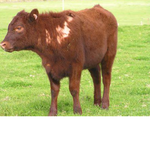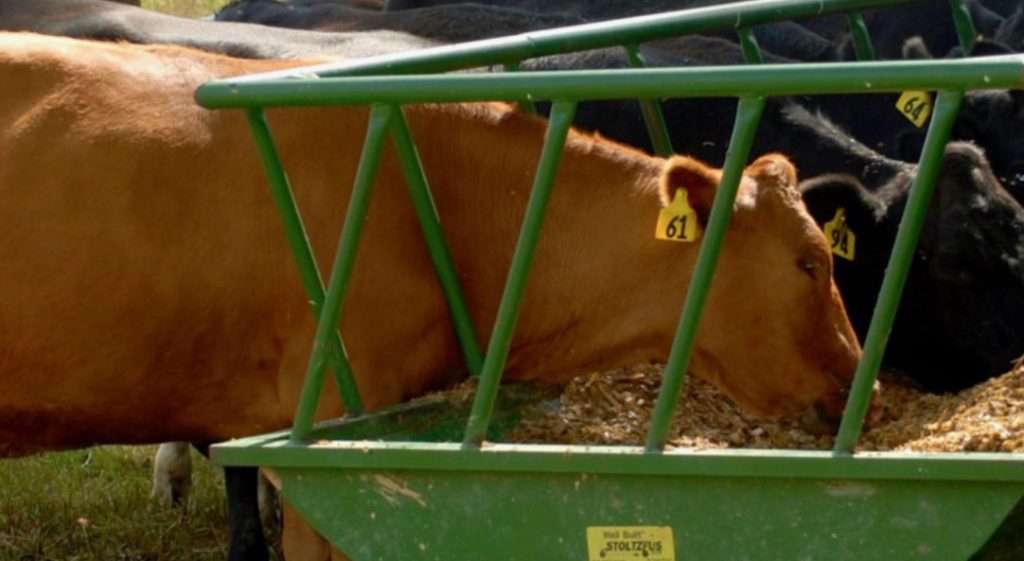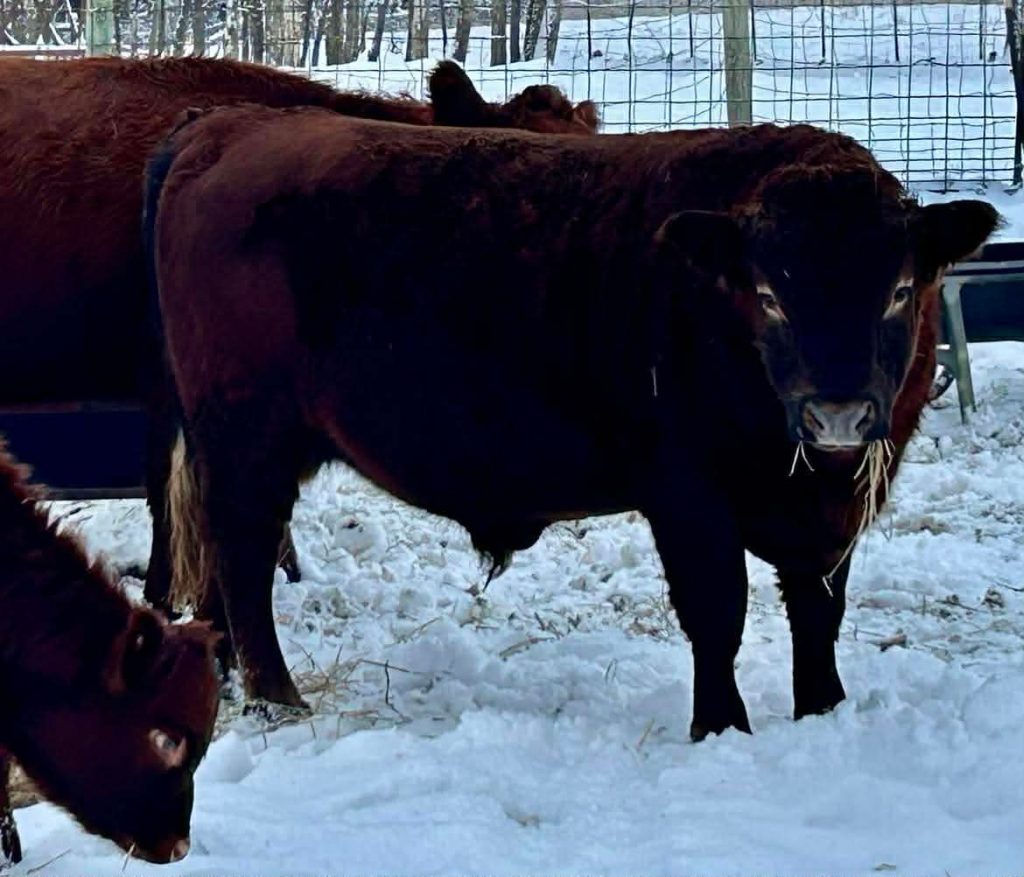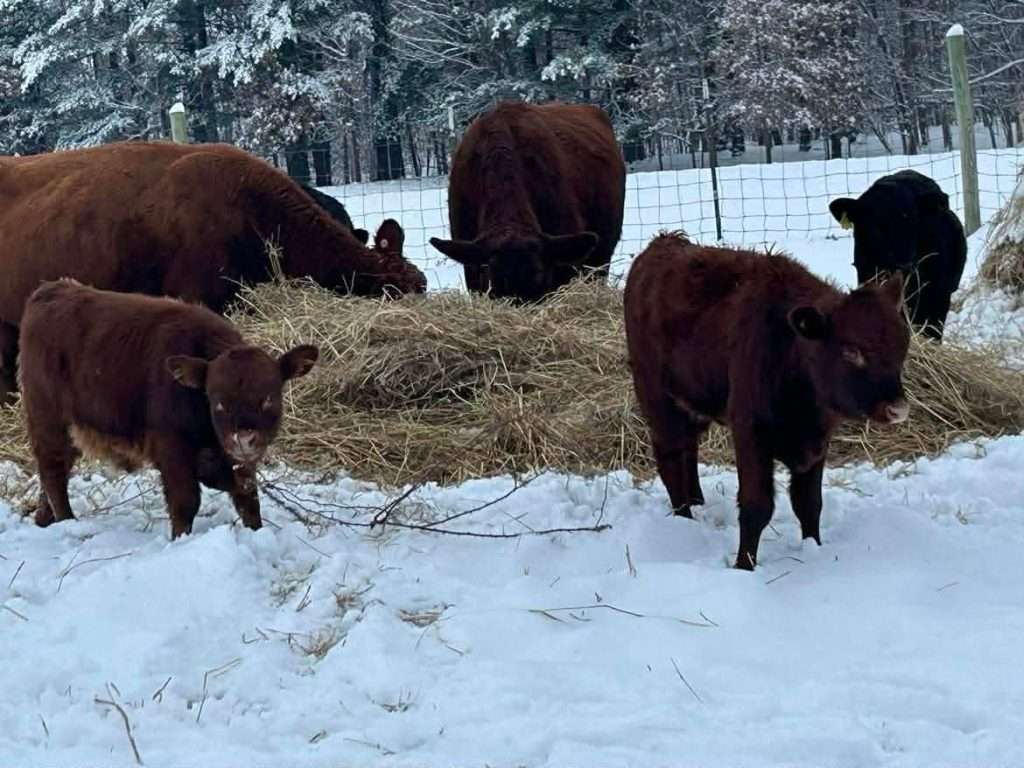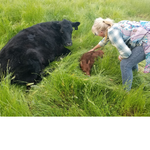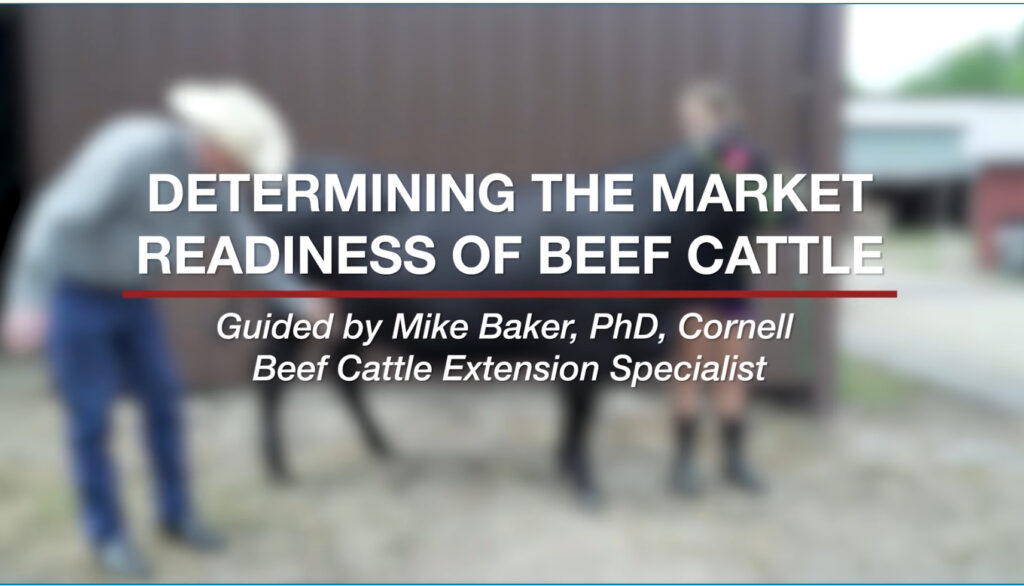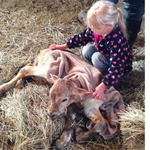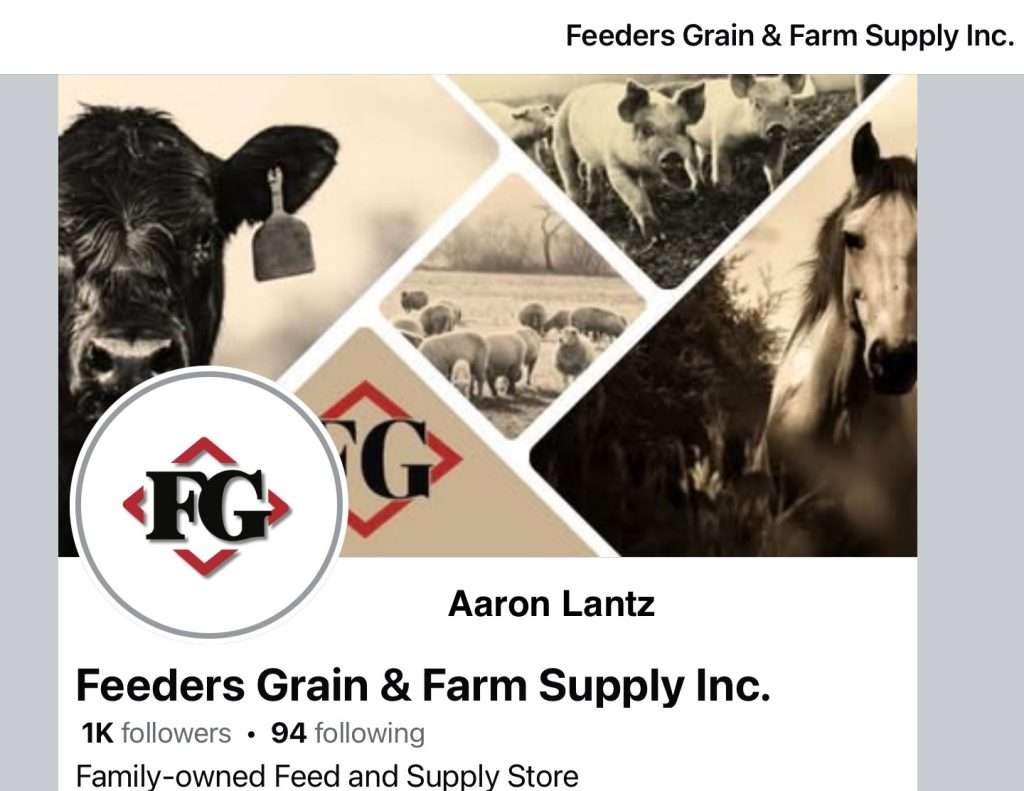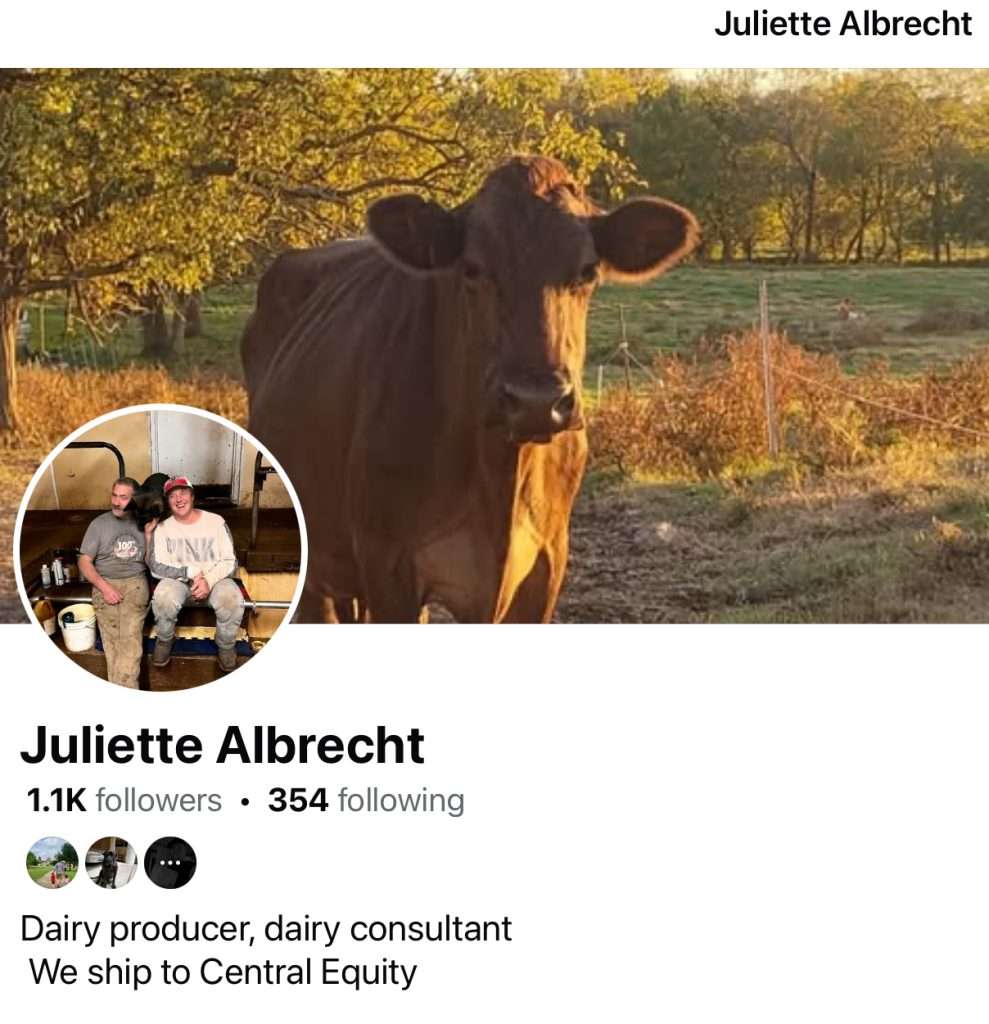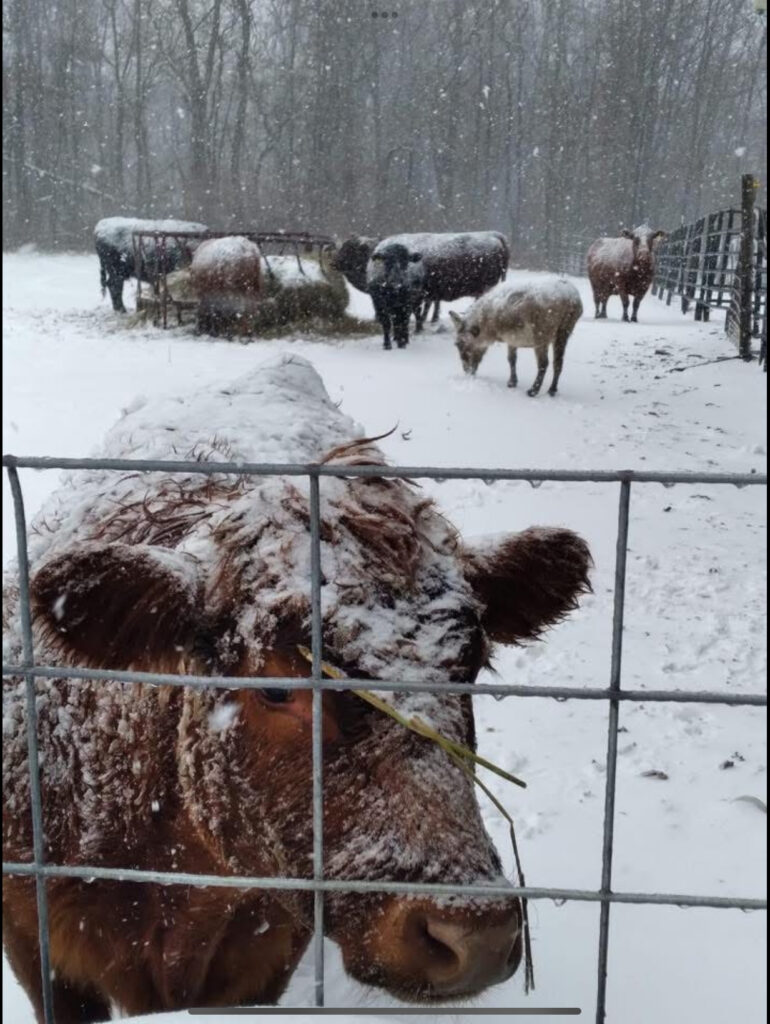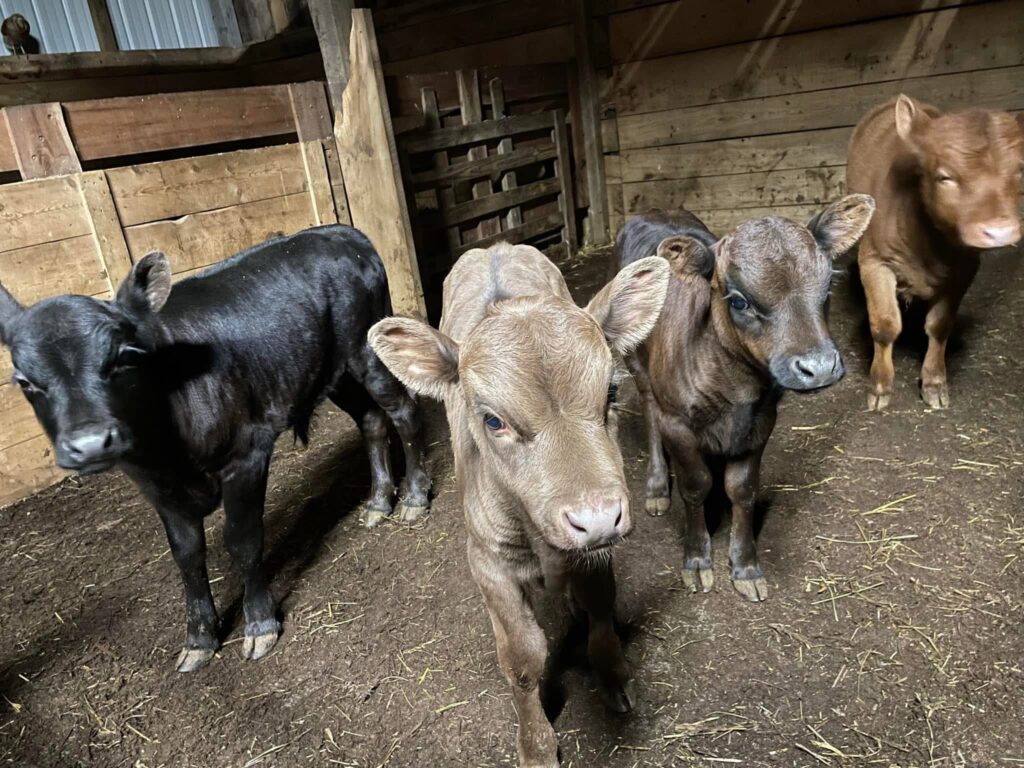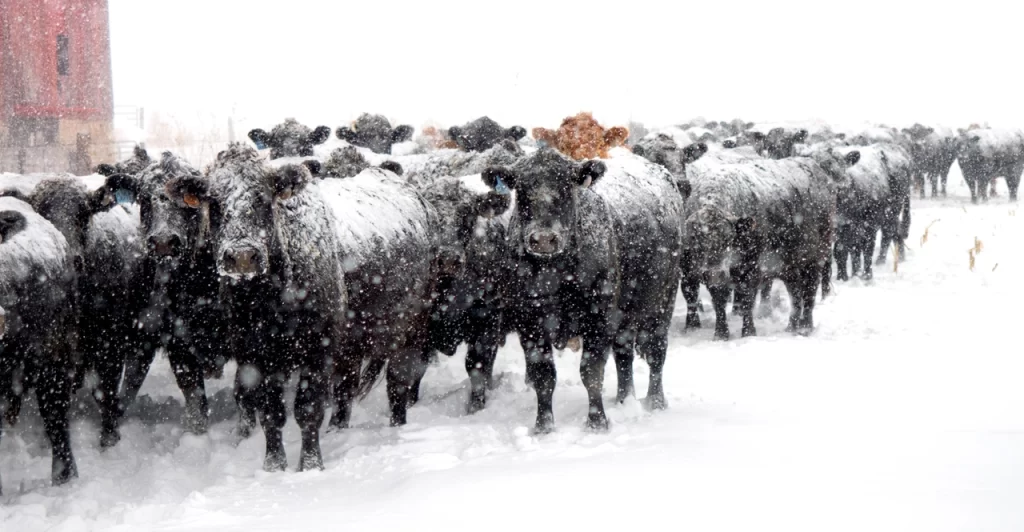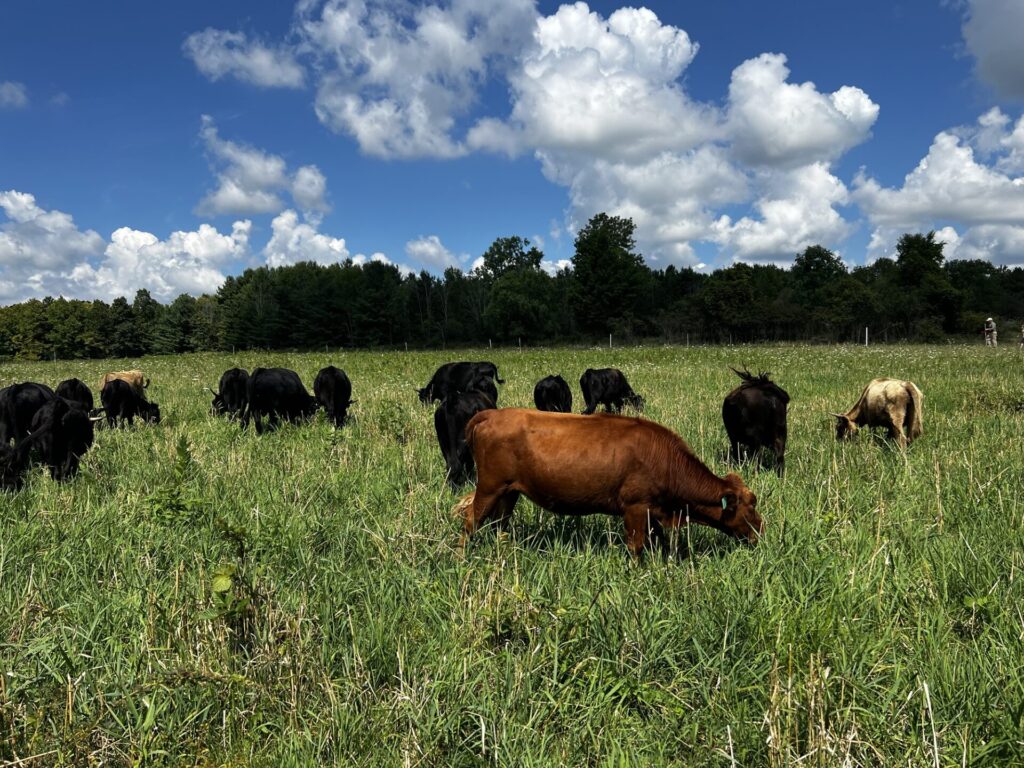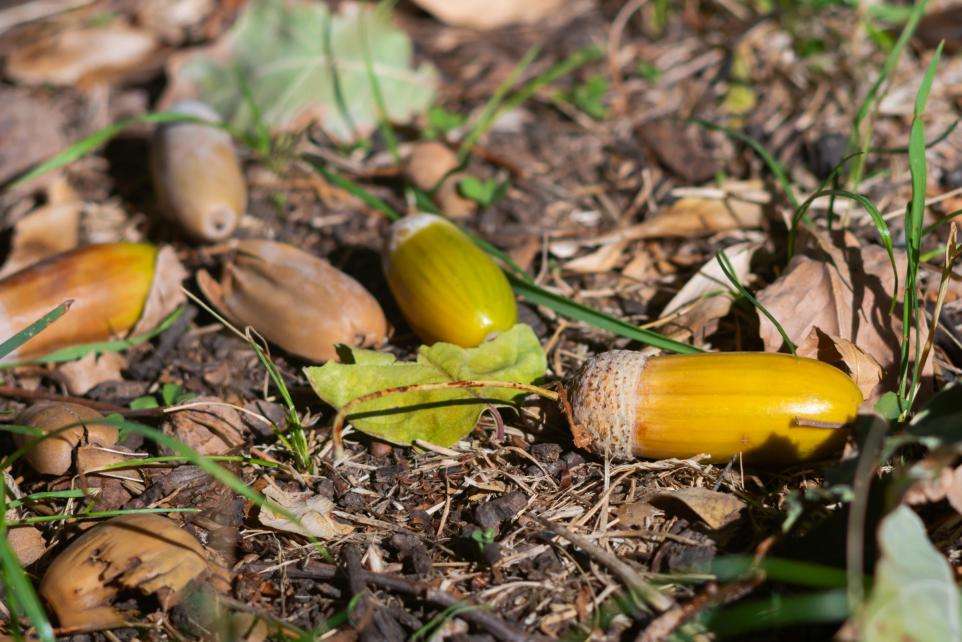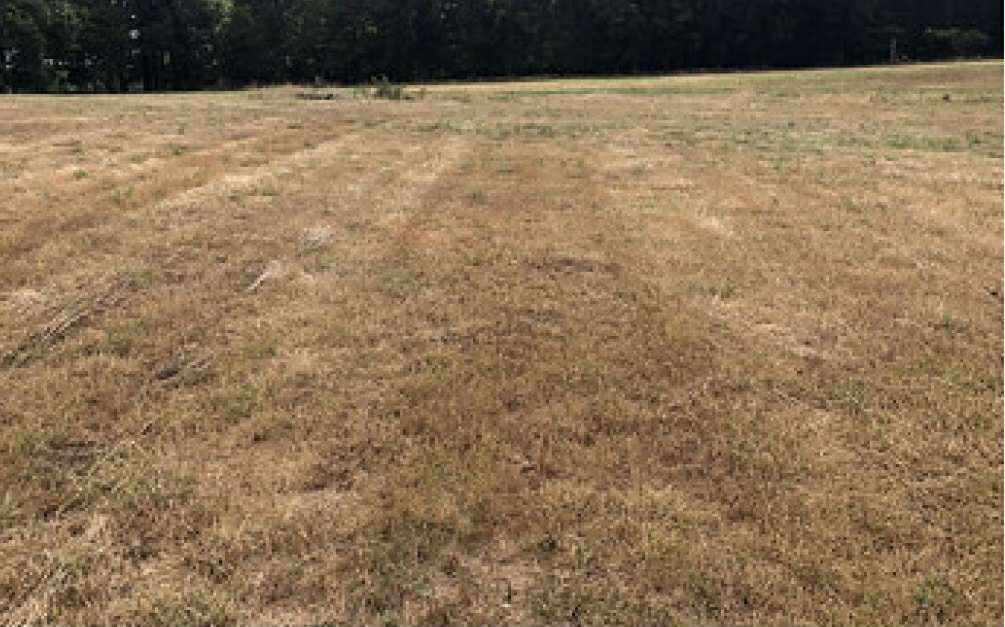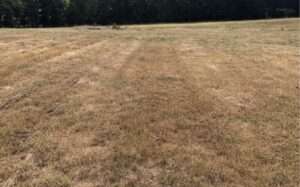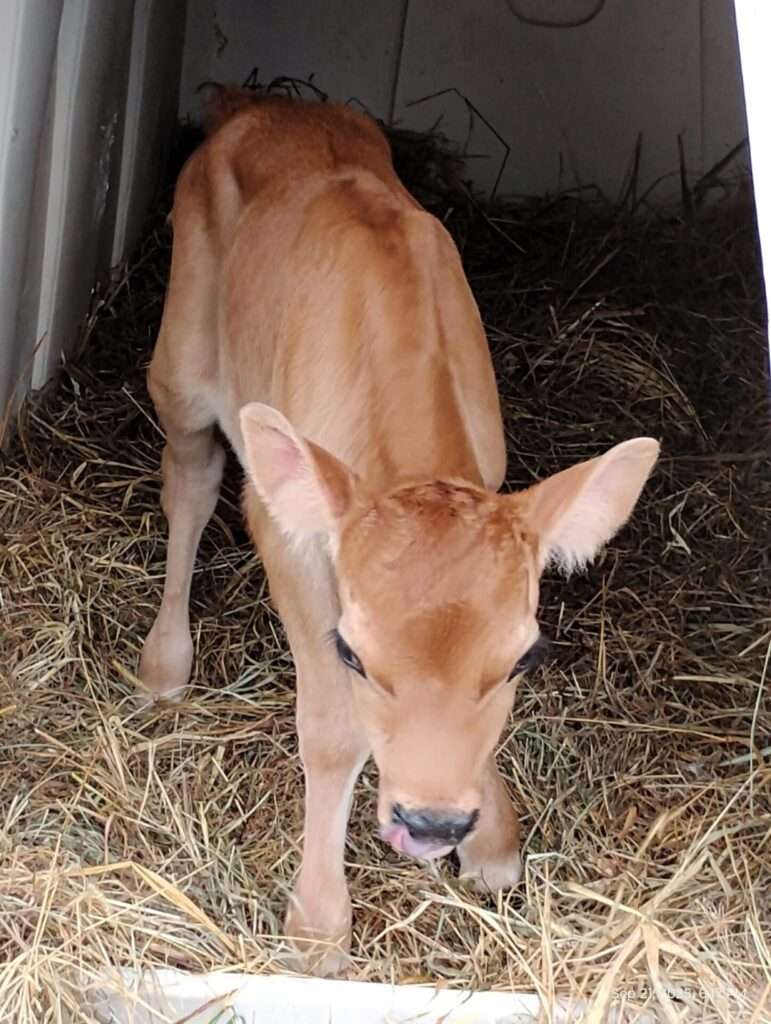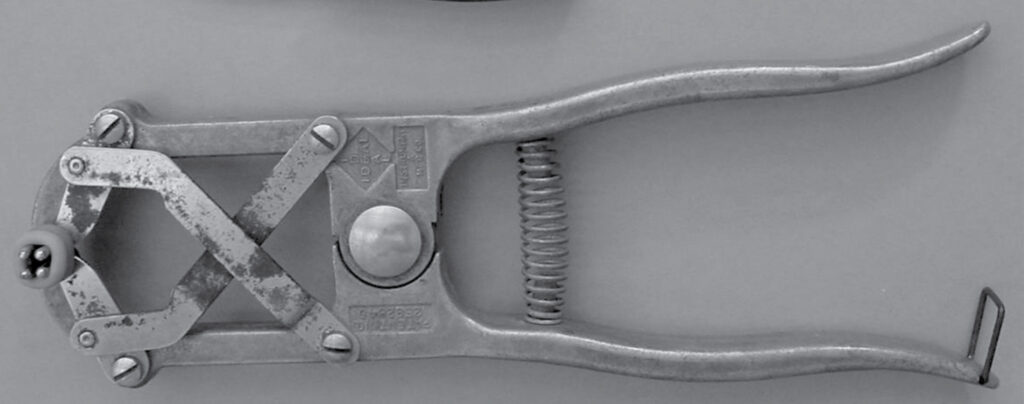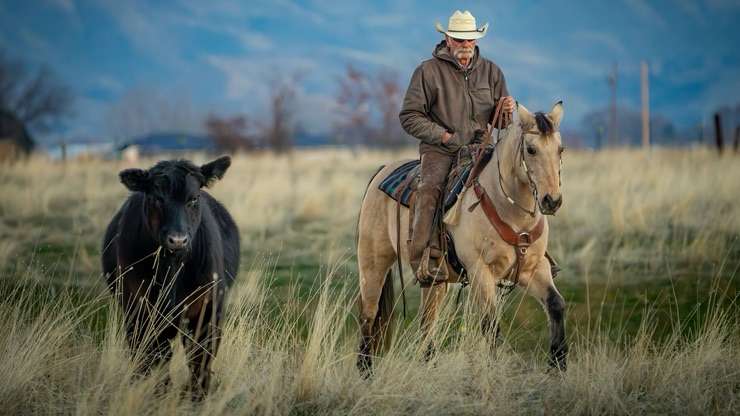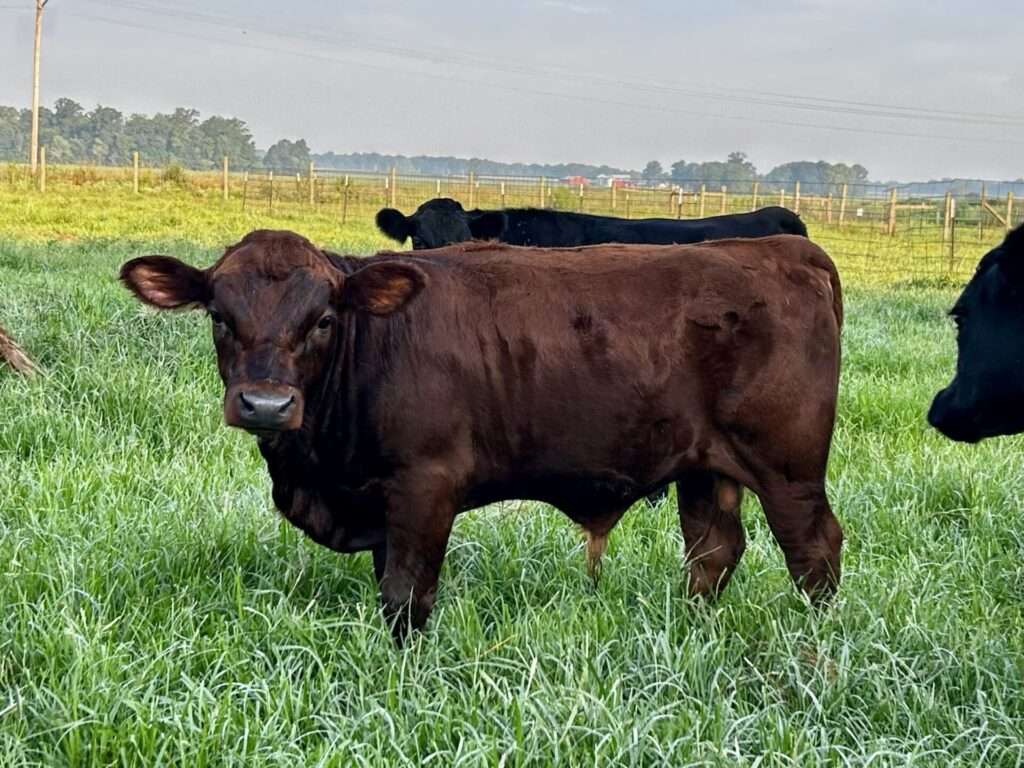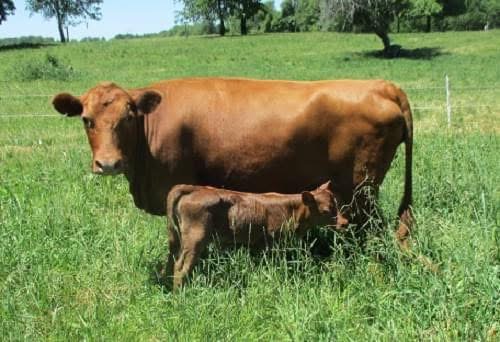The Quiet Hurt of Farming
The Hard Days No One Talks About
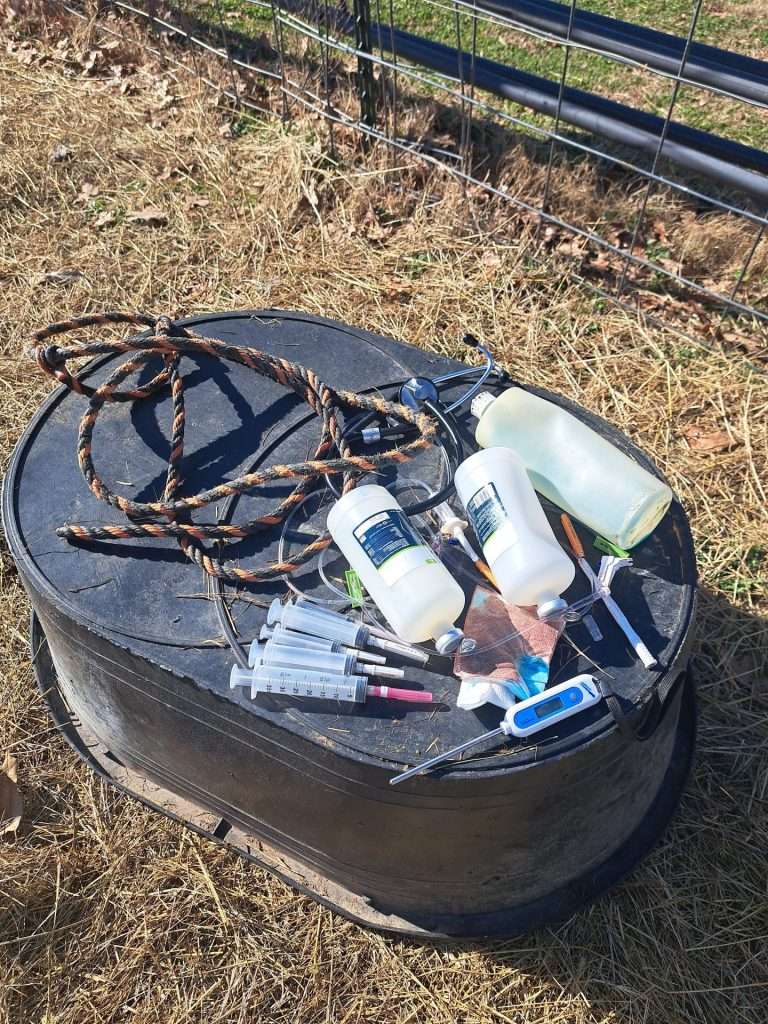
We’ve only had Dexter cattle for 11 years, and in many ways, for a Dexter breeder, that’s a long time. But in the grand scheme of farming, it’s barely a blip on the radar. And yet, it feels like every possible bad thing that can happen on a farm has happened on ours.
These are the things no one likes to talk about.
Sure, everyone loves cute calf pictures. Short videos of a dam effortlessly delivering a fuzzy little miracle. Smiling farmer selfies with a favorite cow. But what about the bad days? Why don’t we talk about the moments that rip your heart out and leave you feeling like you’ve been sucker-punched in the gut?
Do we stay quiet because we’re afraid of being ridiculed? Judged? Or worse, shunned as a breeder?
I think by not sharing these stories, we unintentionally make fellow breeders feel alone, isolated on an island, convinced that bad things only happen to them.
You are not alone, my friend. Bad things happen all the time. We just don’t like to announce them to the world. But today, I’m sharing my story in the hope that it leaves you feeling a little less alone if and when something bad happens on your farm.
About eight years into our Dexter journey I felt confident in my abilities to take on the challenges faced with the large dairy breeds and I got myself a Jersey who quickly became my favorite cow on the farm. I’m sharing her story because it’s one that isn’t limited to dairy cows, it simply unfolded through her.
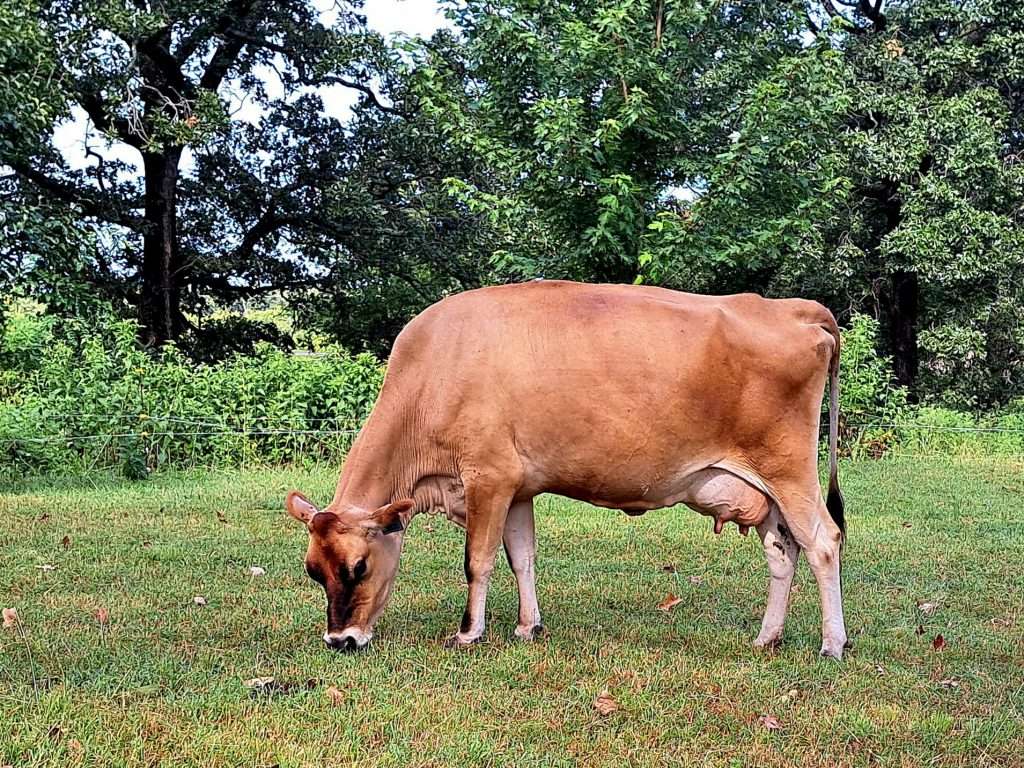
On Tuesday, December 23rd, I found my beloved cow, Jojo standing in the field looking like a gopher with her cheeks packed full and drool pouring from her mouth. I walked her to the chute, thinking maybe she had a stick lodged in her mouth or something equally ridiculous. Instead, I found her mouth packed full of her own cud, stuck to the roof of her mouth. I pulled it out, released her, and she immediately went back to eating and acting completely normal.
Two days later on Christmas Day, of course, I found her standing with her head down, green goo pouring from her mouth and nose, making the strangest sound. A sound I recognized instantly.
She was choking.
I had heard that sound so many times watching Dr. Pol, only it usually came from a horse. I was 100% certain that’s what was happening and I knew I had to act fast.
I haltered her and walked her back to the chute while calling my vet. No answer. Then the mobile vet. No answer. I called every vet within a 60-mile radius, nothing. In total desperation, I called my dairy friend who raises Jerseys. She told me to glove up and go in after it but warned me not to push it down, or I could kill her.
No pressure.
With no vet calling back, I had no choice. I pulled on an OB glove and inserted my entire arm into her mouth and down her throat. I could literally feel her nose against my shoulder. Finally, I reached it. I knew immediately what it was, a solid ball of cud. I tried to sweep it out, but couldn’t get around it. So I gently pinched it and started pulling. That’s when she thrashed her head. Instinctively, I yanked my arm out. After a moment, I realized the choking sound was gone. The drooling had stopped. I hadn’t removed the cud but I had dislodged it enough for her to swallow it.
The next day, I hauled her to the vet. Something was clearly wrong. After examining her tongue, he diagnosed her with wooden tongue.
Wooden tongue is caused by Actinobacillus lignieresii, a bacterium normally present in the mouth and rumen of healthy cattle. It enters through small wounds caused by rough feed, thorns, or sharp plant material, triggering inflammation, abscesses, and a tongue that becomes hard and immobile sometimes so severe the animal can’t eat or drink.
In Jojo’s case, she was packing cud in her mouth instead of chewing and swallowing it. We treated with Macrosyn (generic Draxxin) and planned a second round seven days later, adding LA-300 and IV sodium iodide. But here’s where it got complicated, Jojo is a milk cow. The only approved antibiotic for milk cows is Excede. The vet recommended Macrosyn anyway, because time was not on our side. If wooden tongue isn’t controlled within two weeks of symptom onset, the cow is deemed incurable. We were already on day four.
Because sodium iodide isn’t approved for bred cows and Jojo was due to calve in three days I opted not to use it. A decision I would later regret.
Over the next seven days, I pulled cud from her mouth twice a day as she declined rapidly. Despite feeding her expensive chopped hay and every grain imaginable, she kept losing weight at an alarming rate simply because it hurt too much to eat.
Seven days later, I hauled her back to the vet expecting the worst. Instead, he said the antibiotics were working. Her tongue was reactive again. The first week, she hadn’t moved it at all. Now she was aggressively pulling it from his hand. Relief flooded me but progress was painfully slow. We were on day 10 of 14. Time was running out.
We discussed inducing her so we could safely administer sodium iodide, but the vet strongly advised against it due to the risk of calving complications. He admitted iodide wasn’t technically approved for bred cow but he’d used it many times without issue. At that point, I took the risk. In addition to Macrosyn, we administered IV iodide and another round of LA-300. The next day, for the first time in 11 days, I didn’t have to pull cud from her mouth. Victory!
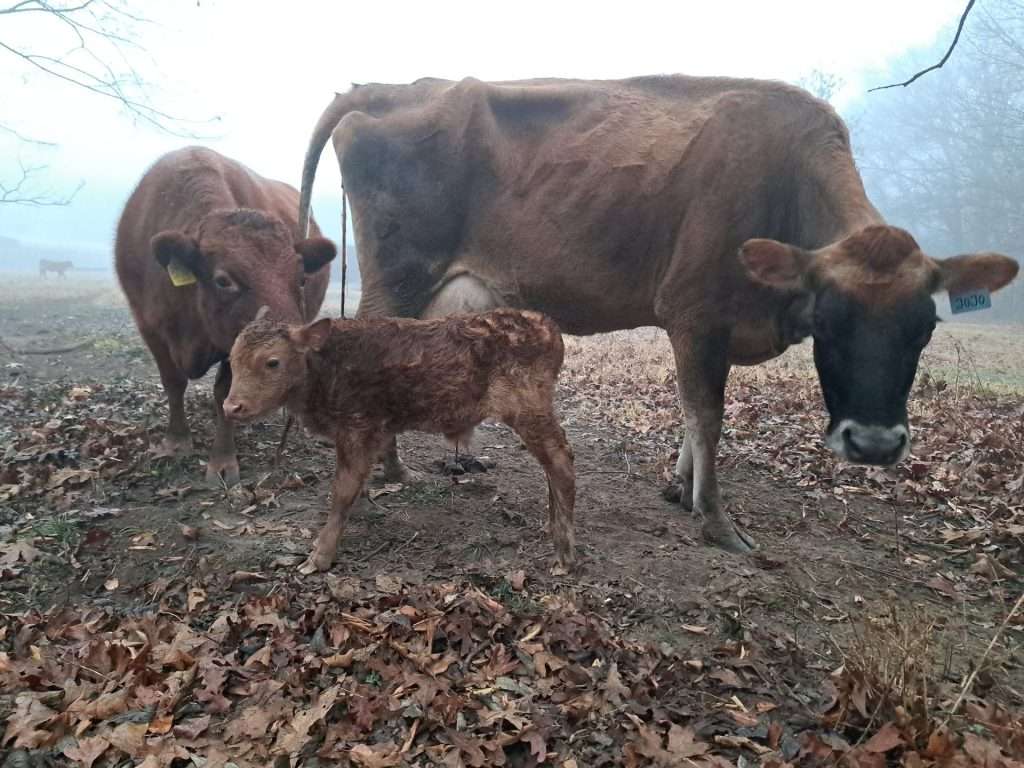
Four days later, Jojo calved a healthy bull calf. She was dangerously thin and still barely eating, but she wasn’t packing cud anymore. I thought the nightmare was finally over. I was wrong. Right after calving, I gave her a Bovikalc bolus (calcium), but forgot to repeat it that night. I woke up in a panic at 6 a.m. and ran to the barn to find her down, legs stretched behind her, head twisted back. I was coming face to face with my biggest fear, milk fever.
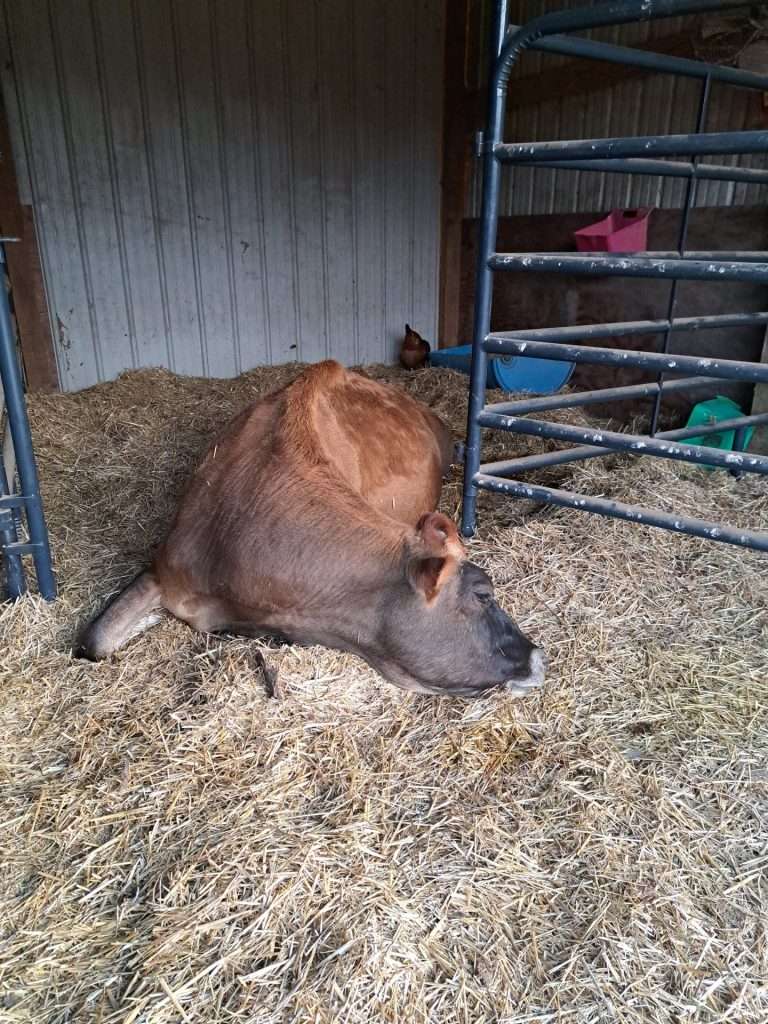
I made call after call while administering another bolus. My vet said he was heading out on a farm call but would try and swing by later in the afternoon. This was a life-or-death emergency. Desperate, I called my dairy friend again. She dropped everything and came. The mobile vet came through for me and followed shortly after.
My friend and I got CMPK (Calcium, Magnesium, Phosphorus, Potassium) into her milk vein, enough to help her stand. Later, the vet administered more IV calcium and transdermal CMPK.
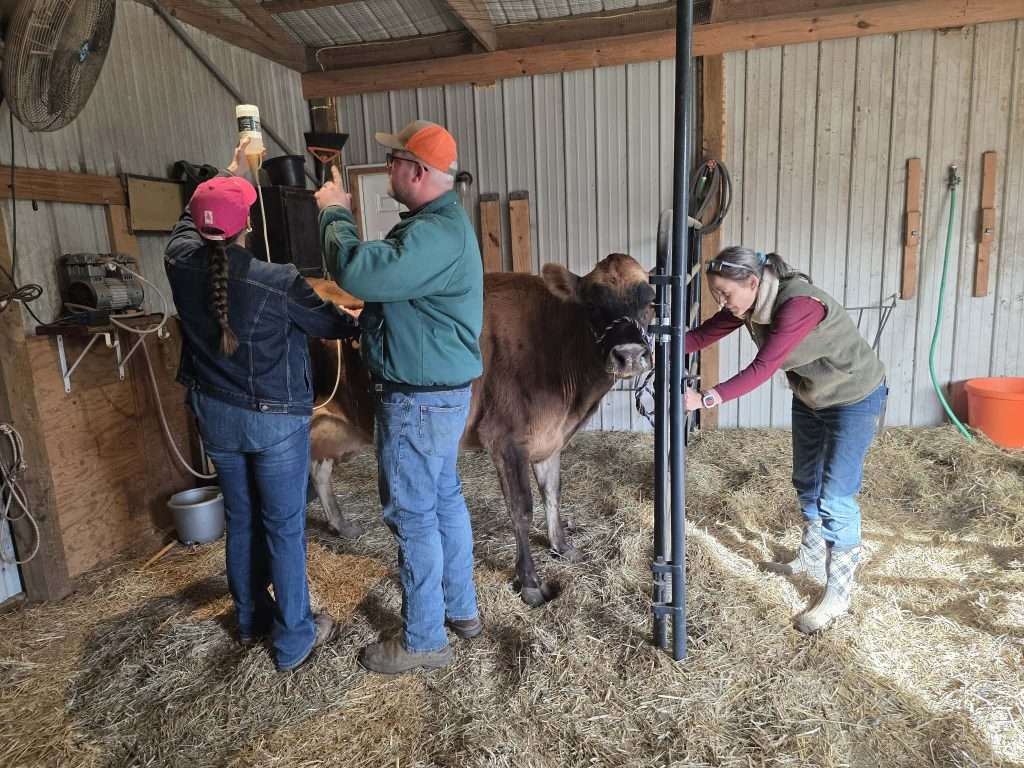
Two days later, she went down again, this time barely alive. Her temperature was 90 degrees. Her body was shutting down. After hours of treatment, we had to get aggressive. I pulled on the halter while the vet smacked her rump, anything to get her up. And she stood. Barely. But she stood.
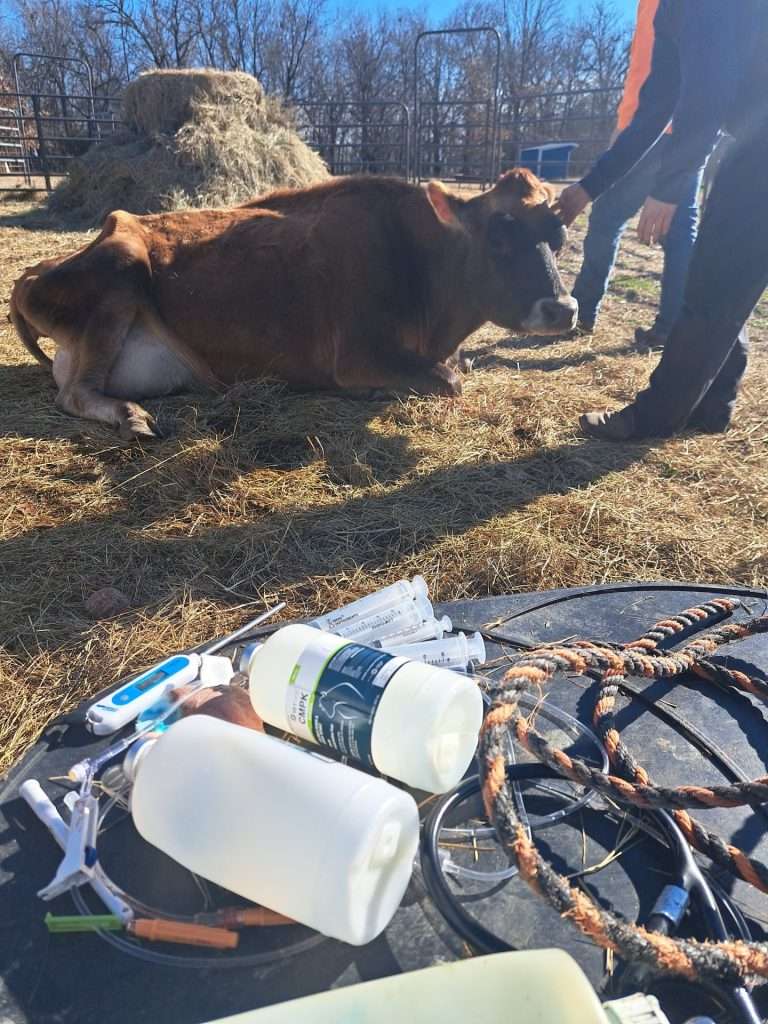
From there came eye ulcers. Pneumonia. A third round of Macrosyn. Multiple CMPK treatments. Sleepless nights. Watching for the smallest signs of improvement, or decline. I checked her every three hours, sitting beside her, stroking her neck, telling her she was a good girl.
One morning, I walked in and found her standing… chewing cud. I cried. Progress came slowly. Then, 23 days in, my heart shattered again, she was packing cud once more. Back to the vet. Excede. More sodium iodide.
That was the last time I ever pulled cud from her mouth.
As I write this:
• 49 days since this nightmare began
• 32 days since her second milk fever episode
• 26 days since I last pulled cud
Jojo is eating a full dairy ration twice a day, eating hay from the bale, gaining weight, and raising a healthy bull calf.
I don’t know if we’re completely in the clear yet. But if farming has taught me anything, it’s this: survival isn’t always loud or pretty. More often, it’s quiet, stubborn, and earned one hard day at a time. The hardest parts of farming rarely make it to social media because they’re messy, exhausting, and unseen but they don’t mean you’ve failed. Sometimes they simply mean you stayed and fought when it would’ve been easier to walk away. And that counts for something.
Through all of this, I’ve been reminded that farming requires a kind of faith we don’t often talk about, the faith to keep showing up when the outcome is uncertain, to do the next right thing even when you’re exhausted, and to trust that God is still working when nothing looks hopeful.
There were many moments when I felt completely powerless. And maybe that’s the point. Sometimes all we can do is place what we love in God’s hands and take one small step forward, believing He sees what we can’t.
Jojo’s story isn’t just about survival. It’s a reminder that grace often shows up quietly. In a cow that stands when she shouldn’t, in strength that returns one mouthful at a time, and in the peace that comes from knowing we are never carrying these burdens alone.
One day at a time. One chore at a time. And a whole lot of faith in between.
About the Author:
Kimberly Jepsen is the heart behind MooShine Ridge in Vinita, Oklahoma, where she and her husband, Kevin, have been raising dual-purpose Dexter cows since 2015. Their little farm store is a labor of love, offering Dexter beef, raw milk, and artisan cheeses made from their own cows. Kimberly has a deep passion for the Dexter breed and loves nothing more than sharing what she’s learned over the years—whether it’s guiding fellow farmers, helping newcomers discover the joys of small-scale farming, or simply introducing people to the rich, creamy flavors of her handcrafted cheeses. For her, farming isn’t just a business—it’s a way to nurture animals, the land, and the community she cares about. https://mooshineridge.com/

The Quiet Hurt of Farming Read More »
Herd Health